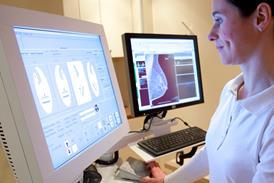- New guidance states FFP2 respirators can be used without fit testing in lieu of certain surgical masks
- Senior procurement staff say certain masks from central stocks have failed
- DHSC has asked trusts to stop bulk-buying their own PPE
Public Health England has made new changes to its guidance on the use of face masks as “a pragmatic approach for times of severe shortage”.
The update came as trust procurement leads reported receiving substandard face masks from national stocks over the weekend, although a PHE spokesman told HSJ that this had not caused the change to guidance.
PHE on Sunday updated its guidance on the use of certain facemasks facing “acute shortages”. The new advice states that FFP2 respirators can be worn without fit testing in lieu of Type IIR surgical masks in non-surgical settings.
The new guidance says: “This is a pragmatic approach for times of severe shortage of respiratory protective equipment, FFP2 respirators being used in this way will not be carrying out the function they were designed to perform.”
However, FFP2 respirators must still be properly fit-tested in situations where this level of protection is required, the new PHE advice states. HSJ has seen evidence of limited fit-testing supplies in recent weeks.
Senior procurement staff working in three regions reported on social media that they had had to quarantine certain masks which were not fit for use, as they did not meet required specifications.
Other senior procurement sources confirmed to HSJ that some trusts had received unusable masks from national stocks.
A spokesman for the Department of Health and Social Care told HSJ: ”NHS Supply Chain has alerted a number of trusts to an issue with a delivery of surgical face masks which is being swiftly resolved. All organisations affected have been contacted and have received replacement deliveries.”
The department did not confirm how many items were reported as unusable over the weekend.
It comes as the DHSC has asked trusts to stop sourcing their own personal protective equipment and other covid-19 related products to reduce competition.
A surge in global demand has created an intense international market for PPE. Images that appeared to show trucks queuing for miles to deliver goods for export to Chinese airports emerged online over the weekend.
Trusts currently receive centrally-sourced covid-19 products from a dedicated supply channel operated by retail logistics firm Clipper, national procurement body NHS Supply Chain and the military. But trust procurement heads have raised concerns over the adequacy of these supplies in recent weeks.
Trusts are also sharing and receiving goods from other organisations through local resilience forums. An emergency PPE hotline is in operation for primary, secondary and community health and social care organisations. A new stock monitoring system from Silicon Valley tech firm Palantir launched Monday.
The Health and Safety Executive, which works with PHE on guidance, has been approached for comment.
Updated at 2.01 p.m. on 4th May 2020 with comment from the Department of Health and Social Care.
Source
Public Health England, Twitter, information obtained by HSJ
Source Date
May 2020



























11 Readers' comments